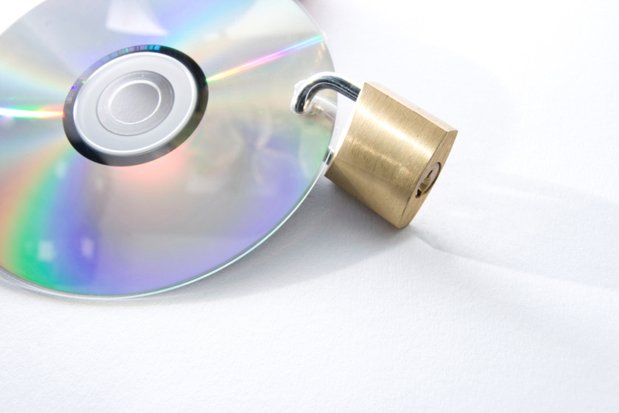Ask GR Anything: What is DRM?
Everybody hates it, but why? Should you?

Ask GR Anything is a weekly Q%26A column that answers questions submitted by readers (as well as questions we're particularly curious about ourselves). Got a burning question about games or the industry? Ask us in the comments below and you may just get it answered!
In some corners of the Internet, even whispering the phrase DRM is tantamount to daring to speak the name “Jehovah” back in the Dark Ages. But what the heck is it? And why should you, as a gamer, care at all? Well Ask GR Anything is here to bring you up to speed, thanks to a question from notorious comment baron MetroidPrimeRib.

Above: The idea is to put a stop to piracy, but DRM can also hurt real customers
We're not going to get too much into the nitty-gritty details, for such a thing would take eons and would bore the Jehovah out of you. But we do want to at least give you the basics, so that you know what people are talking about when spirited debates about DRM do crop up.
To begin with, DRM stands for Digital Rights Management. The term itself sets the tone for the entire debate surrounding the topic. It sounds innocuous enough, but it's been turned into a means for copyright holders to "manage" the "rights" people have to their "digital" content. But before we get too far into the debate against DRM, let's go over some of the commonly used methods in gaming.
Persistent Online Authentication: One of the most notorious types of DRM. It continuously authenticates your game with the game's server. While this adds constant verification that your copy of the game is genuine, it also assumes that you have reliable internet access. If your internet cuts out or your connection goes down, then you're unable to play.

Above: How publishers like to envision software pirates
Weekly digests, tales from the communities you love, and more
SecuROM: At its most basic, SecuROM limits the number of computers that are able to install a game at once. Usually the limit is three or five. SecuROM became reviled net-wide when it was revealed that the highly anticipated game Spore would use this type of DRM, and that SecuROM often logs a hardware upgrade as a fully new installation (even if it was just an operating system or graphics card update).
SafeDisc: A method of making disc-copying more difficult. This method isn't talked about nearly as much as the other two, most likely because hardcore PC gamers rarely buy their games on discs anymore.
The reason people get so up in arms about DRM is that it's essentially a punishment for everybody, based on the actions of software pirates. To use a colorful expression, it's instituting martial law to stop criminals. Opponents tend to argue that pirates will always be pirates. They will continue to find ways to circumvent DRM, and thus the only people impacted by DRM are honest consumers.
It's often very difficult to tell for sure whether DRM actually works, because many games that use aggressive DRM tactics tend to become the target of waves of pirates who illegally download the game on principle. This was the case with Spore in 2008, when the use of SecuROM rallied pirates, and made Spore the No. 1 most pirated game of the year. Contrastingly, pirates tend to (say they) reward companies with their patronage if that company's products don't use DRM. It's hard to get definitive data.

Above: The more likely reality: kids torrenting games and porn in the library
Recently, there has been a growing chorus of industry bigwigs decrying DRM as being based on false beliefs. Valve's Gabe Newell, for instance, famously said that piracy had little to do with price and everything to do with service. He said that the way to stop piracy is to give users a better experience than they'd get from pirating, holding up Steam as a shining example.
Other companies have tried different approaches. CD Projekt Red attempted to hunt down pirates individually and sue them for 1,000 Euros after The Witcher 2 was allegedly pirated 4.5 million times. The company soon dropped that quest, though, saying it didn’t want to risk wrongly accusing any paying fans.
Our personal favorite type of DRM doesn't come with restrictions on what you're able to do with your game, but changes the game if you're caught pirating. Dark Souls developer From Software said it entered its own game with super-charged characters to murder early players. Bohemia Interactive (Operation Flashpoint) also uses similar tactics. The game identified pre-release players (read: pirates) and made their weapons useless or turned them into birds, both of which must have been particularly vexing for military buffs who pirated the game so they could indulge in a military power fantasy.
So, should you hate DRM? Maybe. Do companies have a right to protect their copyrights? Absolutely. Do some of them go about it the wrong way? Probably. We can only hope that someday, someone figures out a compromise that makes publishers and their customers happy, so we don't have to wade in these muddy waters anymore.
Submit your own questions in the comments (or Tweet them to @sciencegroen) and we may tackle them in a future Ask GR Anything.


